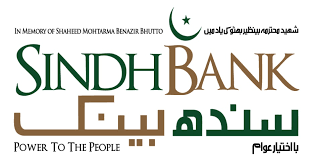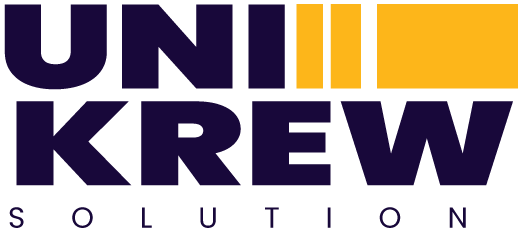
Home » Cyber Security Compliance Services » ETGRM Compliance Services in Pakistan
ETGRM Compliance Services in Pakistan
One of the leading cybersecurity companies Apprise Cyber offers Enterprise Technology Governance and Risk Management (ETGRM) services to the banking sector of Pakistan. Our expert ETGRM services help banks and financial institutions implement and maintain robust security frameworks.
With deep expertise in enterprise technology governance, Apprise Cyber assists organizations in seamlessly aligning with the State Bank of Pakistan’s (SBP) Cybersecurity and Information Security frameworks.
Why Do Banks Need an Enterprise Risk Management Framework?
Banks and financial institutions face an increasing number of threats. Whether they are operational, financial or cyber related, a tried and tested risk management framework ensures,
- Better decision-making
- Risk-aware culture
- Protection from cyber threats
- Regulatory compliance
An enterprise risk management framework is crucial for banks to meet both ETGRM and State Bank of Pakistan’s cybersecurity framework requirements.
Comprehensive ETGRM Services by Apprise Cyber
Apprise Cyber ETGRM service includes:
- Assessment and management of enterprise risks
- Strengthen cybersecurity posture
- Align with State Bank of Pakistan Cyber Hygiene guidelines
- Meet compliance via State Bank of Pakistan’s enterprise technology governance framework
Key Benefits of Apprise Cyber's ETGRM Service
- Compliance Focused: Stay audit-ready for SBP
- Framework-Driven: Based on international and SBP standards
- Technology Aligned: Governance across IT assets and data
- Expert-Led: Delivered by risk and cybersecurity specialists
What’s Included in Apprise Cyber’s ETGRM Service?
- Risk Assessment & Mapping
- ERM Framework Design (SBP-aligned)
- Cyber Hygiene Implementation Plan
- Governance Documentation Support
- ERM Training & Awareness
- Board & Management Reporting Tools
SBP Cyber Hygiene and SBP ETGRM: Key Facts
- SBP Cyber Hygiene ensures baseline cybersecurity across all banks.
- It includes access control, asset inventory and patch management.
- SBP ETGRM fuses IT governance with enterprise risk for better supervision.
- Banks must follow all the guidelines in order to stay compliant with State Bank of Pakistan directives.
Our Trusted Clients in Pakistan and Beyond
















Ready to Start Your ETGRM Compliance?
We help Pakistan-based banks meet ETGRM framework standards with ease and confidence.
Frequently Asked Questions
It is basically a structured approach for identifying, assessing and managing risks across bank IT and operations systems.
Enterprise Risk Management assists banks in ensuring regulatory compliance and make informed decisions while helping them minimize the risk of losses.
The core objective of Enterprise Risk Management is to manage cyber risks as well as financial and operational risks while ensuring compliance.
There are five key components of the Enterprise Risk Management framework.
- Risk Identification
- Risk assessment
- Risk mitigation
- Risk monitoring
- Risk reporting.
Enterprise Risk Management framework not only provides the early warning system needed to prevent financial losses and give you complete control.
Some of the command challenges of implementing Enterprise Risk Management framework includes:
- Little to no awareness
- Antiquated systems
- Lack of accountability
To design and implement Enterprise Risk Management framework, it is important for businesses to follow regulatory guidelines and align with the State Bank of Pakistan framework as well as engaging with experts.
Some of the best practices used for Enterprise Risk Management in banks
- Following standard models (COSO/ISO 31000)
- Conduct regular audits
- Managing risk dashboards
Here are some of the things that should be included in the Enterprise Risk Management framework.
- Outlining Risk Categories
- Establishing a Governance Structure
- Creating a Risk Mitigation Plan
- Setting Key Performance Indicators
State Bank of Pakistan’s Cyber Hygiene is a set of rules that you can follow to establish baseline controls. This can protect your bank from cyber attacks and financial losses.
Cyber Hygiene guidelines were introduced by the State Bank of Pakistan to make sure that all banks meet a certain cybersecurity threshold.
The primary requirements of SBP’s Cyber Hygiene is to create an asset inventory, conduct regular patching, ensure regular data backup, increase employee awareness and access control.
Expect added emphasis on AI powered security measures, stringent audits and improved threat intelligence in the future updates.
Need help implementing SBP ETGRM or Cyber Hygiene controls?
Apprise Cyber is a leading cybersecurity compliance company offering ETGRM compliance services in Pakistan. Contact us via WhatsApp or email us at [email protected] .
Banks can achieve compliance by analyzing the gap, implementing roadmaps and conducting audits.
Install antivirus software, keep everything updated and train users and employees.
Failure to comply with State Bank of Pakistan’s Cyber Hygiene can lead to regulatory penalties, reputation damage and exposes you to cyber risk.
ETGRM is basically a governance model that consolidates IT risk and compliance functions in banks.
The core purpose of ETGRM is to ensure effective technology governance and risk oversight in banks.
The function of ETGRM frameworks include:
- Role definition
- Connect IT and risk
- Setting performance metrics
- Performing compliance checks
Banks can implement eTGRM by doing a gap analysis, keeping policies up to date and getting support from experts.
ETGRM can bring continuous improvement to IT management and provide structure and accountability.
State Bank of Pakistan Cybersecurity Framework provides a comprehensive guide for banks to create and implement cybersecurity programs.
State Bank of Pakistan’s Cybersecurity Framework can enable banks in securing customer data, ensure system integrity and provide much needed security.
SBP’s information security framework outlines all the guidelines and controls for banks when they are managing sensitive information.
State Bank of Pakistan’s Information Security Framework can help banks secure customer data via encryption, access restriction and data monitoring.
Data protection, threat monitoring system hardening and incident response are some of the mandatory controls of State Bank of Pakistan Cybersecurity Framework.
State Bank of Pakistan update its information security policies once every year.
Most State Bank of Pakistan’s Cybersecurity requirements coincide with international standards such as NIST, ISO 27001 and Basel III.

